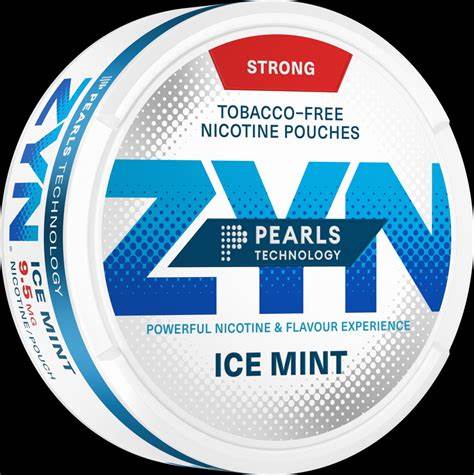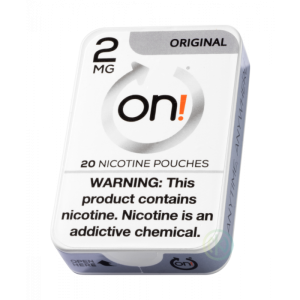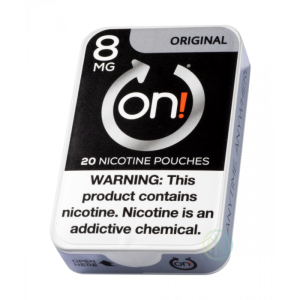Will Llamas wasn’t a habitual smoker when he was first exposed to Zyn nicotine pouches by an acquaintance.
“I had persuaded myself, due to the absence of tobacco, that these were quite harmless,” Llamas, from Stamford, Connecticut, mentioned. “I enjoyed the sensation it provided. It had a pleasant flavor. And thus, I became addicted.”
The 32-year-old individual expressed that he rapidly developed a dependency on Zyn, consuming up to 20 pouches daily. These pouches are available in 3- or 6-milligram quantities of nicotine and offer a range of flavors such as coffee, mint, and citrus.
“It provides a burst of dopamine, making you feel slightly more energized, happier, and almost focused,” Llamas commented.
The popularity of nicotine pouches like Zyn has surged in recent times. Zyn, a brand originating from Sweden, was purchased by Philip Morris in 2022, and during the first quarter of this year, over 131 million cans were sold, marking an 80% increase from the same period last year. Last month, a scarcity of Zyn led to an uproar on social media platforms. Other products in the market include Rogue, Velo, and On!. The majority of these are advertised as alternatives to cigarettes and other tobacco products that do not require smoking, spitting, or handling.
“Typically, when you declare that something is free of a certain element, it tends to appear less harmful,” remarked Tory Spindle, an associate professor of psychiatry and behavioral sciences at Johns Hopkins School of Medicine in Baltimore. “Our worry is whether this perception might make such products more enticing to individuals who would otherwise have never considered using any tobacco product.”
While Spindle suggested that nicotine pouches—which users place between their lip and gums before disposing of them—could act as a preferable option for existing tobacco consumers, “the difficulty lies in how to make these products available to such individuals without unintentionally causing a new group of people, who would never have otherwise used nicotine, to become addicted.”
In an official statement, Philip Morris expressed its “commitment to creating products like Zyn that are scientifically proven to be a better choice compared to continued smoking.”
Llamas mentioned that he had experimented with other tobacco-free products in the past but found their taste unappealing.
“It was genuinely quite revolting, so the advantages weren’t present,” Llamas commented. “I wasn’t hooked on those, but these were an entirely different matter,” he said, alluding to Zyn.
After approximately a year of Zyn usage, however, he began to encounter gastrointestinal issues—problems he now links to the nicotine pouches.
“I underwent numerous tests. I visited a hospital. I had an ultrasound, I had a colonoscopy, and all they discovered was that my stomach was inflamed,” he shared. After investigating his symptoms online, he suspected the pouches might be the root of his troubles. “I haven’t had stomach issues since the day I quit abruptly.”
Llamas wears an Apple Watch daily and mentioned that the device registered a decrease in his resting heart rate by 10 beats per minute after he ceased using the pouches.
“I truly wish I had been better informed when I tried my first pouch,” he said. “Had I known it would lead to so many health problems, I wouldn’t have started.”
Adverse health impacts
Dr. Donna Shelley, a professor and vice dean for research at the New York University School of Global Public Health, stated that although nicotine pouches do not result in the same health issues as tobacco-containing products, she would not label them as “safe.”
“Some of the adverse health effects of nicotine pouches include gastrointestinal symptoms, such as nausea, gum irritation and ulcers, as well as certain cardiovascular risks like an increased heart rate,” said Shelley, who studies tobacco control, further noting, “We are not yet aware of the complete safety profile.”
A 2023 study that compared Zyn pouches to smokeless tobacco and nicotine replacement products revealed that while Zyn does not contain “nitrosamines or some of those well-known cancer-causing agents, it does contain certain chemicals like formaldehyde that the FDA has identified as potentially harmful,” she mentioned.
Dr. Varisha Parikh, a prosthodontist at Parikh Prosthodontics in Los Angeles, has issued warnings regarding the possible dental health impacts of nicotine pouches on social media.
“Placing an item on your gum tissue for an extended period, which is a chemical agent, is essentially inviting problems in that area,” she stated.
Sydney Cunningham reported experiencing gum recession as a result of using Zyn. The 30-year-old from Safford, Arizona, adopted the habit while working on her doctoral degree because she “wanted an extra boost” to assist her in concentrating and studying for exams.
“I place the Zyn pouches as far back in my mouth as possible, near the wisdom teeth on the upper side of my mouth,” Cunningham explained. “And that is precisely where I’m encountering these gum issues.”
Concerns for children and adolescents
One of the primary worries among healthcare professionals is that these items are not solely being utilized by grown-ups, but also by minors and teenagers.
“When adolescents consume nicotine, it alters the functioning of their brains. This can then predispose them to a lifelong dependency on nicotine,” remarked Judith Gordon, a professor and assistant dean for research in the school of nursing at the University of Arizona.
Spindle, who is investigating the addictiveness of the various flavors of nicotine pouches, noted that “they do appear to be aggressively targeted at young people.”
“The design is precisely the type of thing that makes it simple for teenagers to use and, you know, convenient and easy to hide,” commented Vaughan Rees, director of the Center for Global Tobacco Control at Harvard T.H. Chan School of Public Health. The different potencies may make the pouches more accessible to start using, he added. “The design may actually promote use among youth instead of serving as a practical alternative for an adult smoker.”
A study released on Wednesday in the Journal of the American Medical Association discovered that the use of nicotine pouches among adults in the U.S. stays low, notwithstanding the rise in sales.
The investigation, however, solely examined adults, as mentioned by study co-author Adam Leventhal, the director of the Institute for Addiction Science at the University of Southern California. It’s plausible, he suggested, that individuals who are minors are contributing to the surge in sales.
“Although the study concentrated on adults, there are data that have been published, and are also upcoming, indicating that a significant portion of teenagers also utilize nicotine pouches at rates exceeding those we observed for adults,” Leventhal stated.
Previously this year, the Food and Drug Administration issued 119 warnings to vendors who were selling Zyn to minors. ”
The FDA continues to be concerned about any tobacco product that may be attractive to youth,” a spokesperson for the agency said in a statement.
The FDA is currently in the process of evaluating the marketing applications for Zyn and other nicotine pouches, although the agency has permitted the products to be sold in the U.S. for the time being. Various medical organizations have requested the FDA to withdraw them from the market during the review period.
Last month, Phillip Morris temporarily halted online sales of Zyn due to inquiries about whether it breached Washington, D.C.’s prohibition on the sale of flavored tobacco. Nevertheless, the products remain readily accessible online through alternative sellers.
In a declaration, Philip Morris asserted that “Zyn’s marketing is aimed at legal age nicotine users who are 21 and over.”
It has been half a year since Llamas gave up, but he mentioned he still experiences urges.
“I’m not sure if they’ll ever disappear,” he said. Quitting was challenging, he added, because he would use a Zyn pouch during virtually every activity. ”
So I had to re-learn how to appreciate these activities and my body needs to produce its own dopamine,” Llamas said. “So going to the gym, driving, you know, at work — all these things I had to re-learn how to enjoy.”



